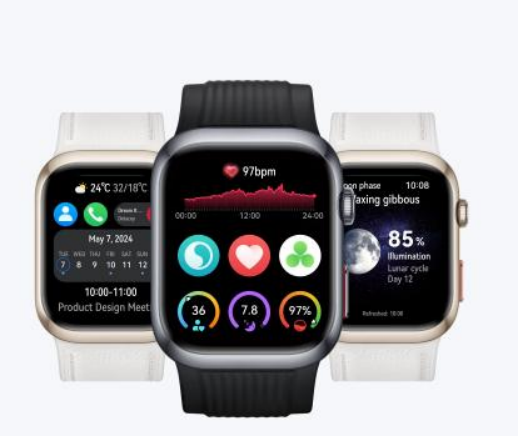Monitoring blood pressure is crucial for maintaining optimal health, offering insights into how our cardiovascular system functions. Regular checks can help detect issues early, guiding timely interventions to avoid severe complications. Advancements in technology, such as wrist wearables like the HUAWEI WATCH D2, provide convenient and accurate ways to track blood pressure throughout the day, even while we sleep. This article explores the best time to do blood pressure for the most consistent and reliable results.

Why Monitoring Blood Pressure is Important
Keeping track of your blood pressure helps you and your healthcare provider understand your heart health better. Consistent monitoring can reveal trends and patterns that signify underlying problems like hypertension or hypotension. By identifying these issues early, interventions can be made to prevent more severe conditions such as strokes, heart attacks, or kidney diseases. Additionally, modern devices provide comprehensive reports and analytics, ensuring you have a detailed understanding of your cardiovascular health.
The Best Times to Measure Blood Pressure for Accuracy
Morning vs. Evening: When Is the Ideal Time?
Morning measurements are often recommended by healthcare professionals. Blood pressure tends to be highest in the morning due to the body’s circadian rhythm. Measuring in the morning can provide a baseline reading, especially before any physical activities or stressors impact the day. However, evening measurements can be beneficial too, as they reflect the cumulative effect of daily activities on your blood pressure. For a thorough assessment, consider taking readings at both times and discussing these with your doctor.
Consistency is Key: Measuring at the Same Time Every Day
To achieve the most reliable results, it’s essential to measure blood pressure at the same time each day. Consistency eliminates variables that could affect readings, such as physical activity or stress during different times of the day. Using advanced devices like the HUAWEI WATCH D2, equipped with precise pressure sensors, mini pumps, and inflatable airbags, ensures you get accurate measurements regularly, whether you’re at home, at work, or on the go.
Factors That Affect Blood Pressure Readings
Physical Activity and Stress Levels
Physical activity can significantly impact blood pressure. Exercise raises blood pressure temporarily, but regular physical activity can lead to long-term reductions in resting blood pressure. Stress is another critical factor; stress hormones can raise your blood pressure temporarily. Hence, it’s advisable to measure blood pressure in a calm state, free from recent physical exertion or emotional stress, for a more accurate reading.
Diet, Hydration, and Medication Timing
Diet and hydration status greatly influence blood pressure levels. High salt intake can raise blood pressure, whereas a balanced diet rich in fruits, vegetables, and low-fat dairy can lower it. Dehydration can also lead to inaccurate readings, so staying well-hydrated is important. Furthermore, the timing of medication can affect your readings. If you’re on blood pressure medication, measure your blood pressure before taking your dose to get a true picture of your body’s baseline levels.
How to Properly Measure Blood Pressure
Step-by-Step Guide for Accurate Readings
To ensure accurate blood pressure measurements, follow these steps: 1. Avoid caffeinated beverages and physical activity at least 30 minutes before measuring. 2. Sit in a comfortable chair, with your back supported and feet flat on the floor. 3. Rest your arm on a table, at heart level. 4. Place the cuff on your bare arm, one inch above the elbow. 5. Follow the device instructions to take the measurement.
Common Mistakes to Avoid When Measuring Blood Pressure
Avoid these common errors for more accurate results:
1. Measuring over clothing instead of directly on your skin.
2. Talking or moving during the measurement.
3. . Incorrectly placing the cuff, such as too loose or too tight.
4. Measuring right after eating or engaging in physical activities.
5. Failing to measure at the same time each day.

Conclusion
Monitoring blood pressure accurately and consistently is vital for detecting health issues early and managing cardiovascular health effectively. Using modern devices like the HUAWEI WATCH D2 makes this process more convenient and reliable, offering continuous monitoring and comprehensive health insights. By understanding the best times and conditions for measurement, along with proper techniques, you can ensure your readings are as accurate as possible, leading to better health outcomes.